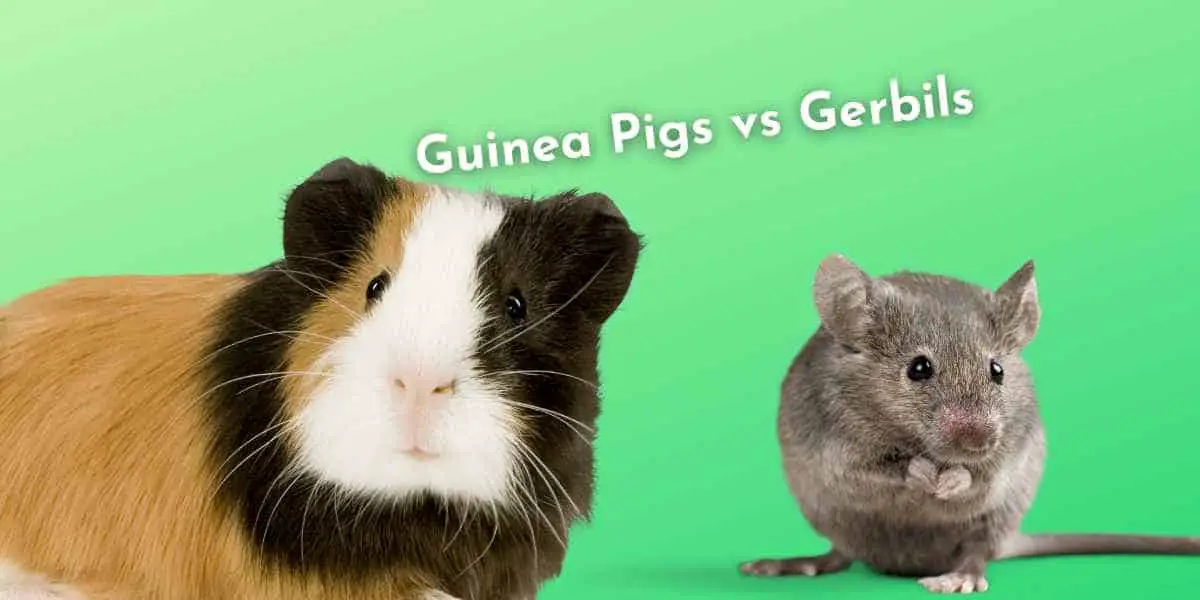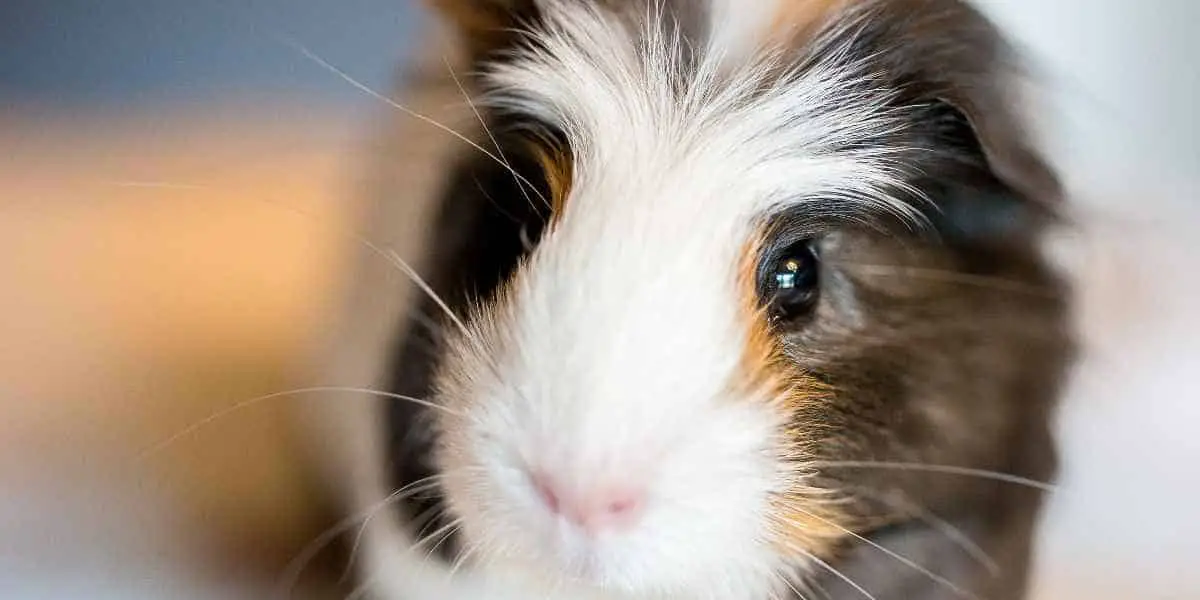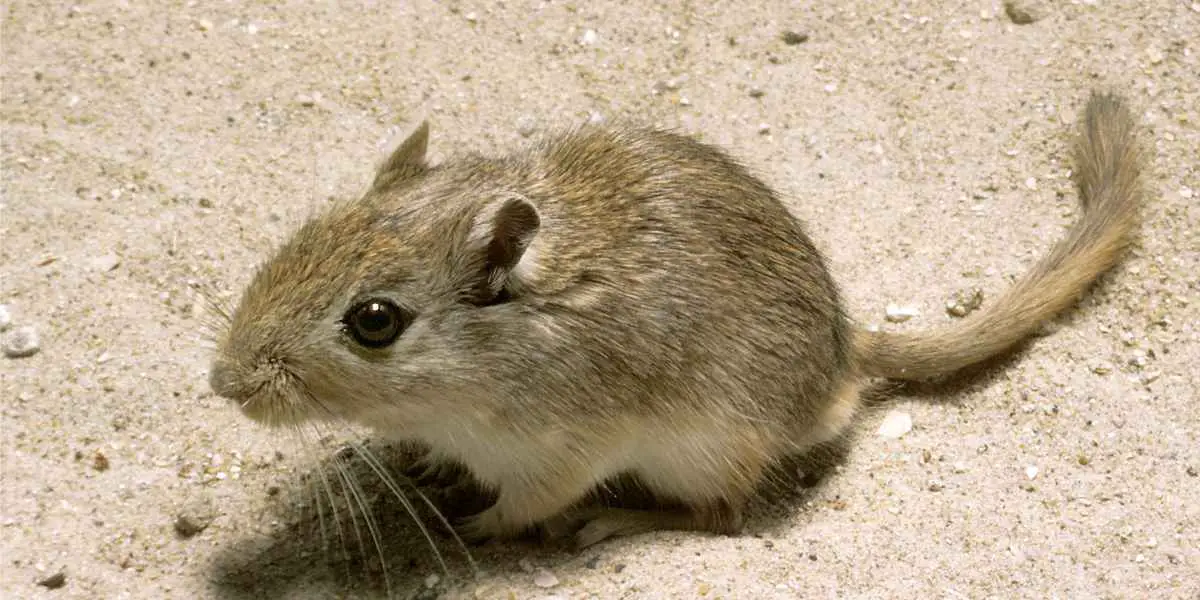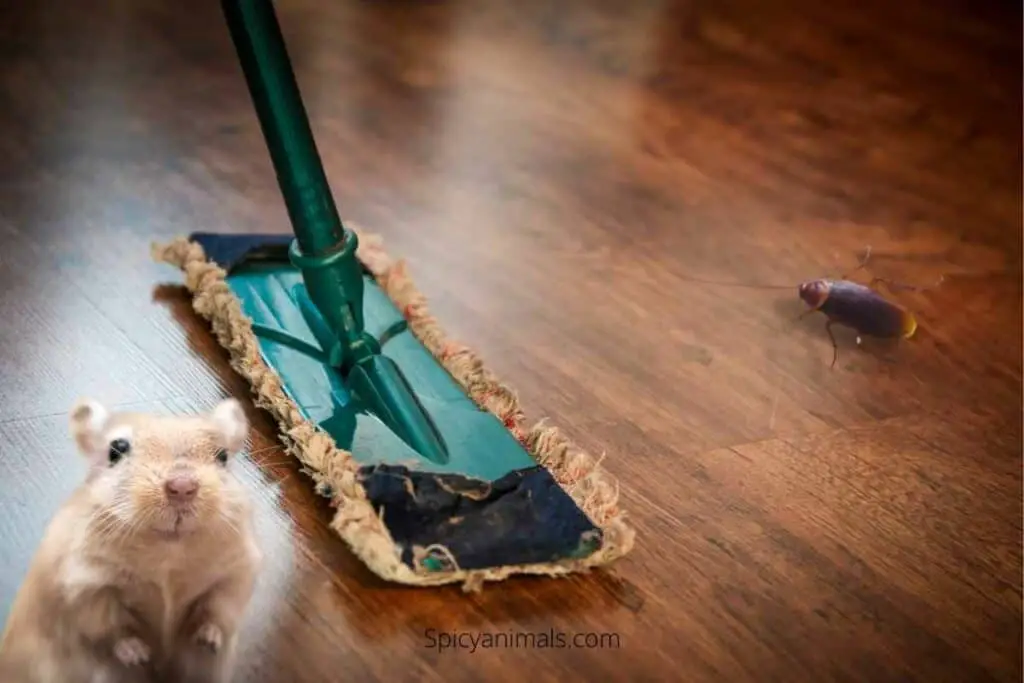If you’re considering getting a small pet, you might be wondering whether a guinea pig or a gerbil would be the best fit for you. Both of these animals are popular choices for small pet lovers, but they have some key differences. In this article, we’ll take a closer look at guinea pigs vs gerbils to help you make an informed decision.
Gerbils are small, active rodents that require less space and enjoy digging, while guinea pigs are larger, more social animals that need more room and enjoy a varied diet. Both make good pets but have different care needs and temperaments.
When it comes to choosing between a guinea pig and a gerbil, there are many factors to consider. You’ll need to think about your lifestyle, your living situation, and your budget, as well as the needs and personalities of the animals themselves. In the following sections, we’ll explore the similarities and differences between these two popular small pets, so you can make an informed decision about which one is right for you.
Table of Contents
Key Takeaways
- Guinea pigs and gerbils are both popular choices for small pet lovers, but they have different physical characteristics, behaviors, and environmental requirements.
- Guinea pigs are larger and stockier than gerbils, with shorter tails and bigger ears. They are social animals that thrive on companionship, while gerbils are smaller and more active with longer tails and smaller ears.
- When choosing between a guinea pig and a gerbil, you’ll need to consider your lifestyle, living situation, budget, and the needs and personalities of the animals themselves.
Overview of Guinea Pigs and Gerbils
If you’re contemplating getting a pet rodent, you might be torn between getting a gerbil or a guinea pig. These two popular pets are different animals with very different needs, making the choice crucial for your lifestyle and preferences. here is a quick overview for you:
Size and Lifespan
Guinea pigs are larger than gerbils. Guinea pigs tend to have a longer lifespan, unlike gerbils, which usually live for 2-7 years. The size means that guinea pigs need a large, flat area to run around, while gerbils need more vertical space.
Temperament and Social Needs
Guinea pigs are highly docile and enjoy being held, making them suitable pets for children under the age of ten, albeit requiring supervision. Gerbils can be quite active and are curious creatures that enjoy playing and running around. While guinea pigs are social creatures that should be kept in pairs or groups, gerbils are more territorial and are best kept alone or in same-sex pairs.
Diet and Care
Both gerbils and guinea pigs need a diet rich in fresh vegetables and high-quality dry food. However, guinea pigs need additional vitamin C, unlike gerbils.
Activity and Exercise
Guinea pigs grow to be larger and are generally more docile, so they don’t get enough exercise unless you provide them with a spacious living area. Gerbils, on the other hand, are still very active and need plenty of vertical space to explore and exercise.

Physical Characteristics
When it comes to physical characteristics, guinea pigs and gerbils have some notable differences. Here are the main differences in size, color, fur, ears, legs, and tail.
Size and Length
Guinea pigs are larger than gerbils. An adult guinea pig can weigh anywhere from 700 grams to 1.2 kilograms, while an adult gerbil typically weighs between .35 to 8 ounces. Guinea pigs are also longer than gerbils, usually measuring between 7 to 15 inches in length, including their tail. Gerbils, on the other hand, are around 6-16 inches long, including the tail.
Color and Fur
Both guinea pigs and gerbils come in a variety of colors and patterns. Guinea pigs can have short or long hair, and their fur can be straight or curly. Gerbils, on the other hand, have soft, dense fur that is typically a sandy brown color. Some gerbils also have a white belly.
Ears, Legs and Tail
Guinea pigs have larger ears and eyes than gerbils. They also have shorter legs and a stockier build. Guinea pigs do not have a visible tail, but they do have a small internal tail. Gerbils, on the other hand, have long tails that are covered in fur. They also have longer legs and a more slender build.
Overall, guinea pigs and gerbils have distinct physical characteristics that set them apart from each other. When choosing between the two as a pet, it’s important to consider their differences in size, color, fur, ears, legs, and tail to determine which one is best suited for you and your lifestyle.
Behavior and Personality Traits
When it comes to behavior and personality traits, guinea pigs and gerbils have some notable differences. Let’s take a closer look at their social behavior, active and playful nature, and burrowing and digging habits.
Social Behavior
Guinea pigs are social animals and enjoy interacting with their owners. They are known for being friendly and affectionate, making them a great choice for families with children. They are also vocal creatures and will often make a variety of noises to communicate with their owners.
Gerbils, on the other hand, are more independent and can be kept alone or in pairs. They tend to be more active at night and are crepuscular animals, meaning they are most active during dawn and dusk.
Active and Playful Nature
Both guinea pigs and gerbils are active and playful creatures. Guinea pigs love to run around and play, and they need plenty of space to do so. They are also intelligent and curious animals that enjoy exploring their surroundings.
Gerbils are also very active and agile creatures. They love to dig and burrow, and they need plenty of space to do so. They are known for their playful nature and can often be seen running around their cage or playing with toys.
Burrowing and Digging Habits
Gerbils are known for their burrowing and digging habits and need plenty of space to do so. They will often create complex tunnel systems in their cage, and it is important to provide them with plenty of bedding material to support their burrowing habits.
Guinea pigs also enjoy digging and burrowing, but they are not as active in this regard as gerbils. They still need plenty of space to move around and explore, and it is important to provide them with a suitable environment that supports their natural behaviors.
In summary, both guinea pigs and gerbils are active and playful animals that require plenty of space to move around and explore. Guinea pigs are social and affectionate creatures, while gerbils are more independent and crepuscular(active during the twilight hours of dawn and dusk.) animals. Both species enjoy digging and burrowing, but gerbils are known for their complex tunnel systems and need more space to support this behavior.

Habitat and Environmental Requirements of gerbils and guinea pigs
When it comes to habitat and environmental requirements, guinea pigs and gerbils have some distinct differences. In this section, we will go over the cage size and bedding, toys and exercise, and climate and conditions that are necessary for both of these rodents.
Cage Size and Bedding
Guinea pigs require a larger cage than gerbils due to their larger size. A cage that is at least 7.5 square feet is recommended for one or two guinea pigs, while a cage that is at least 10 gallons is sufficient for one or two gerbils. You should also provide your guinea pigs with a larger cage if you have more than two.
For bedding, both guinea pigs and gerbils need a soft and absorbent material. Guinea pigs require a thicker layer of bedding, at least 2-3 inches, to help absorb their urine. Paper-based bedding or fleece liners are recommended for guinea pigs, while a thinner layer of bedding is sufficient for gerbils.
Toys and Exercise
Both guinea pigs and gerbils need toys and exercise to keep them healthy and happy. Guinea pigs require more space to run around and play, so providing them with tunnels, hideouts, and things to climb on is important. Gerbils, on the other hand, love to dig and burrow, so providing them with a deep layer of bedding and a digging box will keep them entertained.
You should also provide your guinea pigs with daily exercise outside of their cage. A playpen or a designated area in your home where they can run around safely is recommended. Gerbils, on the other hand, can get all the exercise they need inside their cage but providing them with a wheel is important.
Climate and Conditions
Both guinea pigs and gerbils are sensitive to extreme temperatures and humidity. Guinea pigs are more sensitive to cold temperatures, so keeping their cage in a warm and draft-free area is important. Gerbils, on the other hand, are more sensitive to heat and should be kept in a cool area.
You should also keep your guinea pig’s cage out of direct sunlight and away from any sources of moisture, as they are prone to respiratory infections. Gerbils, on the other hand, are more tolerant of dry conditions but should still be kept away from direct sunlight and drafts.
Overall, providing your guinea pig or gerbil with a comfortable and stimulating environment is essential for their health and happiness. By following these guidelines, you can ensure that your pet is living in a safe and comfortable environment.
Diet and Nutrition (guinea pigs vs gerbils)
When it comes to the diet of guinea pigs and gerbils, there are a few key things to keep in mind. Both animals require a balanced diet that includes a variety of nutrients to keep them healthy and happy. In this section, we’ll go over some of the different types of food that are important for these animals, including fruit and vegetables, hay and grasses, and seeds and dry food.
Fruit and Vegetables
Both guinea pigs and gerbils need a diet that is rich in fruits and vegetables. These foods provide important vitamins and minerals that are essential for good health. Some good options for guinea pigs include carrots, bell peppers, and leafy greens like kale and spinach. For gerbils, try offering small amounts of fruits like apples, pears, and berries, as well as veggies like carrots and broccoli.
It’s important to remember that both guinea pigs and gerbils have specific dietary needs, so it’s important to do your research before offering any new foods. For example, guinea pigs require a diet that is high in vitamin C, so it’s important to offer them foods that are rich in this nutrient.
Hay and Grasses
Hay and grasses are an important part of both guinea pig and gerbil diets. These foods provide important fiber that helps keep their digestive systems healthy. For guinea pigs, it’s best to offer a variety of different types of hay, including timothy hay, orchard grass, and alfalfa hay. Gerbils, on the other hand, prefer grasses like meadow hay or oat hay.
When offering hay and grasses, it’s important to make sure they are fresh and clean. Remove any old or moldy hay from your pet’s enclosure and replace it with fresh hay on a regular basis.
Seeds and Dry Food
Seeds and dry food can also be a part of your pet’s diet, but it’s important to choose the right types of food. For guinea pigs, look for a high-quality pellet that is formulated specifically for their dietary needs. Gerbils, on the other hand, prefer a mix of seeds and grains.
When offering seeds and dry food, it’s important to remember that these foods should only make up a small part of your pet’s diet. Too much dry food can lead to obesity and other health problems, so it’s important to offer a balanced diet that includes a variety of different foods.
Overall, a balanced diet that includes a variety of different foods is essential for the health and happiness of both guinea pigs and gerbils. By offering a mix of fruits and vegetables, hay and grasses, and seeds and dry food, you can help ensure that your pet gets all of the nutrients they need to thrive.

Health and Lifespan gerbil vs guinea pig
Common Health Issues
Both gerbils and guinea pigs are generally healthy pets, but they can still experience health issues. It’s important to keep an eye on your pet’s behavior and physical condition to catch any potential problems early on. Here are some common health issues to be aware of:
- Dental Problems: Both gerbils and guinea pigs have continuously growing teeth, which can cause problems if they’re not kept trimmed down. Signs of dental issues include drooling, difficulty eating, and weight loss.
- Respiratory Infections: Gerbils and guinea pigs can develop respiratory infections if they’re kept in a damp or dirty environment. Symptoms include sneezing, coughing, and labored breathing.
- Parasites: Both gerbils and guinea pigs can be affected by parasites like mites and lice. Signs of infestation include scratching, hair loss, and scabs.
Lifespan and Aging
Gerbils and guinea pigs have different lifespans and aging processes. Here’s what you need to know:
- Lifespan: Gerbils typically live for 2-4 years, while guinea pigs can live for 5-7 years. However, with proper care, some gerbils and guinea pigs have been known to live longer than their average lifespan.
- Aging: As gerbils and guinea pigs age, they may become less active and more prone to health issues. It’s important to adjust their diet and exercise routine to suit their changing needs. Keep an eye out for signs of aging, such as decreased appetite or mobility.
Overall, both gerbils and guinea pigs can make great pets with proper care and attention to their health and lifespan.
Care and Handling
When it comes to caring for guinea pigs and gerbils, there are a few things you need to keep in mind to ensure that your pets stay healthy and happy. Here are some tips to help you take care of your furry friends.
Grooming and Hygiene
Both guinea pigs and gerbils require regular grooming to keep their coats clean and healthy. You should brush your pets at least once a week to remove any loose fur and prevent matting. You can use a soft-bristled brush or a comb to groom your pets.
In addition to grooming, you should also keep your pets’ cages clean. Remove any soiled bedding and replace it with fresh bedding at least once a week. You should also clean the cage itself with a mild soap and water solution to prevent the buildup of bacteria and other harmful substances.
Training and Tricks
While guinea pigs and gerbils are not as trainable as dogs or cats, they can still learn a few tricks. For example, you can train your pets to come to you when you call their names or to stand up on their hind legs. You can also teach them to use a litter box if you want to keep their cage cleaner.
To train your pets, you should use positive reinforcement techniques such as treats and praise. Be patient and consistent, and don’t expect your pets to learn everything overnight.
Bonding and Interaction
Both guinea pigs and gerbils are social animals that enjoy the company of others. If you have only one pet, you should consider getting another one to keep it company. Guinea pigs do well in pairs or small groups, while gerbils are happiest in same-sex pairs.
To bond with your pets, you should spend time with them every day. You can play with them, talk to them, and offer them treats. Over time, your pets will learn to trust you and enjoy your company.
Overall, taking care of guinea pigs and gerbils can be a joy for owners of all ages. By following these tips, you can ensure that your pets stay healthy and happy for years to come.
Differences and similarities between gerbils and guinea
When it comes to choosing between guinea pigs and gerbils as pets, it’s important to understand their differences and similarities. In this section, we’ll explore the main areas of comparison between these two small mammals.
Appearance and Size
One of the most obvious differences between guinea pigs and gerbils is their size. Guinea pigs are much larger than gerbils, typically weighing between 700 g to 1.2 kg, while gerbils weigh between 56 g to 113 g. This means that guinea pigs require more space to live and play, and they may also need more food and care.
In terms of appearance, both guinea pigs and gerbils have fur and come in a variety of colors and patterns. However, guinea pigs have longer hair than gerbils, and some breeds require regular grooming to keep their coats healthy and shiny.
Behavior and Personality
Another key difference between guinea pigs and gerbils is their behavior and personality. Gerbils are known for their high energy levels and love of burrowing and digging, while guinea pigs are more relaxed and enjoy cuddling and interacting with their owners.
Both types of pets are social animals and benefit from having companionship, but guinea pigs are generally more vocal and expressive than gerbils. They also require more attention and handling to stay socialized and comfortable around humans.
Diet and Care
When it comes to diet and care, guinea pigs and gerbils have some similarities and differences. Both need a balanced diet that includes fresh fruits and vegetables, as well as a good quality pellet food. However, guinea pigs require more vitamin C than gerbils, and their diet should be supplemented with fresh greens and other vitamin-rich foods.
In terms of care, both guinea pigs and gerbils need clean living spaces, regular exercise, and access to fresh water. However, guinea pigs require more space than gerbils, and they may need more frequent cleaning and grooming.
Overall, the choice between guinea pigs and gerbils as pets depends on your lifestyle, preferences, and ability to provide the necessary care and attention. While both types of pets make great companions, they have different needs and personalities that should be considered before making a decision.
Conclusion
After comparing guinea pigs and gerbils, you should have a better idea of which pet is right for you. Here are some key points to consider:
Size: Guinea pigs are larger than gerbils and require more space. They also require larger cages and more food. If you have limited space, a gerbil may be a better option.
Personality: Guinea pigs are more social and enjoy interacting with humans. They are also more vocal and may make more noise. Gerbils are more independent and prefer to interact with each other.
Lifespan: Guinea pigs typically live longer than gerbils, with an average lifespan of 5-7 years compared to 2-4 years for gerbils.
Grooming: Guinea pigs require more grooming than gerbils due to their longer hair. They also need their nails trimmed regularly.
Cost: Guinea pigs are generally more expensive to care for than gerbils due to their larger size and dietary needs.
Ultimately, the decision between a guinea pig and a gerbil comes down to personal preference and lifestyle. If you have limited space and prefer a more independent pet, a gerbil may be the right choice for you. If you have more space and enjoy interacting with your pet, a guinea pig may be a better fit.
Frequently Asked Questions
What are the differences between guinea pigs and gerbils in terms of size?
Gerbils are significantly smaller than guinea pigs, with an average length of 2-8 inches and an average weight of 50 grams. Guinea pigs, on the other hand, are larger, with an average length of 7-15 inches and an average weight of 700-1200 grams.
Which is easier to care for, a hamster or a guinea pig?
Both hamsters and guinea pigs have similar care requirements, including a clean living space, fresh food and water, and regular exercise. However, guinea pigs may require more space and attention due to their larger size and social nature.
What is the lifespan of a guinea pig compared to a gerbil?
Gerbils have a lifespan of 2-7 years, while guinea pigs typically live for 4-8 years. However, with proper care and nutrition, both can live longer.
Do guinea pigs like to be held?
Some guinea pigs enjoy being held and cuddled, while others may be more independent and prefer to explore their environment. It is important to handle guinea pigs gently and regularly to help them become comfortable with human interaction.
Which type of guinea pig is the friendliest?
There is no one “friendliest” type of guinea pig, as personality can vary greatly between individuals. However, socialization and handling from a young age can help guinea pigs become more comfortable with human interaction.
What are the main differences between hamsters, gerbils, and guinea pigs as pets?
Hamsters are solitary animals that prefer to live alone, while gerbils and guinea pigs are social animals that thrive in groups. Gerbils are active and playful, while guinea pigs are more relaxed and enjoy cuddling. Guinea pigs also require more space and attention than hamsters or gerbils.



